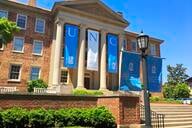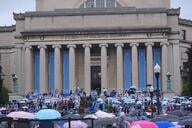You have /5 articles left.
Sign up for a free account or log in.
Hoping to help Ph.D.s secure jobs and challenge old notions about academe, Stanford University will encourage and pay for humanities graduate students to pursue careers as high school teachers, starting next year.
The plan consists of a new course offering that will expose graduate students to humanities issues in high school pedagogy and curriculum, and a promise by the School of Humanities and Sciences to fully fund each humanities Ph.D. admitted to the competitive Stanford Teacher Education Program in the Graduate School of Education.
“Many of our students are superb teachers and committed to the transmission as well as the production of knowledge, and our society needs good teachers at all levels,” said Debra Satz, senior associate dean for the humanities and arts, in an e-mail interview. Although not a traditional career path for Ph.D.s in the U.S., where teaching is “undervalued,” she added, “In Europe, it is much more common for high school teachers and others to have advanced degrees.”
The news came during a Faculty Senate panel discussion last week organized by Russell Berman, professor of comparative literature and German studies and a leading voice in the national dialogue on reforming doctoral education.
Professors in other disciplines also shared ideas and concerns about doctoral education during the discussion, which Berman said was requested by senate members. Stanford is already a leader in reform, including its challenge to humanities departments last year to cut their time-to-degree to five years in exchange for year-round graduate student funding; Berman also advocated for change during his recent term as president of the Modern Language Association, and still chairs an organization task force on the matter. Funding Ph.D.s’ teaching certification is one way to address what’s wrong with the doctoral process, he said, starting with professors’ expectations for their graduate students.
“What I hear again and again from graduate students is that they’re interested in careers others than faculty careers – they just don’t want their advisers to find out about it,” he said. “They sense advisers will cease to support them if they signal career plans [outside the academy] or maybe don’t want to be researchers.”
Satz said she didn’t know how many students ultimately would apply for and be accepted to the teaching program, which costs about $40,000 per year, but that there was already great interest among graduate students; 40 attended a meeting she organized on teaching high school earlier this year. Events to publicize the new course, to be offered next winter, will be held in the fall, she said.
In a lean academic job market with creeping time-to-degree and student debt, graduate education has to change, said Berman; departments must not only support alternative career paths, but better-prepare students for such routes. And it’s not just a humanities problem. Berman said he was surprised to hear during the panel that elements of the so-called “crisis of the humanities” weren’t specific to the field.
Bob Simoni, professor of biology, said that two years ago the department capped graduate students’ funding at 5.5 years, amid concerns that some were taking too long. Although some professors objected to the policy that bans them from funding students even with their own grant money, Simoni said most faculty ultimately supported the measure and have worked to get students out in that time period. Students also select a thesis lab earlier in their program to accommodate the new timeline.
Jim Plummer, dean of engineering, also raised concerns about Ph.D.s who were “parked” in postdoctoral positions, displacing graduate students who might enter the program – despite the fact that most graduates in the field eventually move on to jobs in industry, not academe.
“Mostly, it was setting the stage for discussions that will continue,” Plummer said of the panel. Raymond Levitt, Faculty Senate chair and professor of engineering, agreed that there was broad interest in continuing the conversation in detail next year.
Although Berman believes doctoral reform will continue to germinate at the department level, he said there’s value in continuing to discuss it across the disciplines – and the time is ripe for change. With the impact of technology on instruction and the realities of the academic job market, he said, “We’re in a very flexible moment for higher education.”





